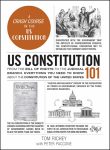
The Whole Catastrophe by Jami Macarty
Vallum, September 2024
In her aptly titled fourth chapbook, The Whole Catastrophe, Jami Macarty takes readers on a road trip to the Bosque del Apache Wildlife Refuge in New Mexico while reflecting on fragility of life, greed of corporations, and the disasters we must withstand, from plastics pollution to toxic feedlots to carbon monoxide poisoning. Mourning the death of a dear friend and threats of fragile ecologies are reasons for despair but not to disengage. In The Whole Catastrophe, resisting destruction means caring for the interdependent parts of wonder, annotating birds on their migratory course, waving hello to grief, and knowing catastrophe like a constellation above.
Jami Macarty is the author of The Long Now Conditions Permit, winner of the 2023 Test Site Poetry Series Prize (forthcoming University of Nevada Press), and The Minuses (Center for Literary Publishing, 2020), winner of the 2020 New Mexico/Arizona Book Award – Poetry Arizona. Jami’s four chapbooks include Mind of Spring (Vallum Chapbook Series, 2017), winner of the 2017 Vallum Chapbook Award. To learn more about Jami’s writing, editing, and teaching practices, visit her author website.

















































